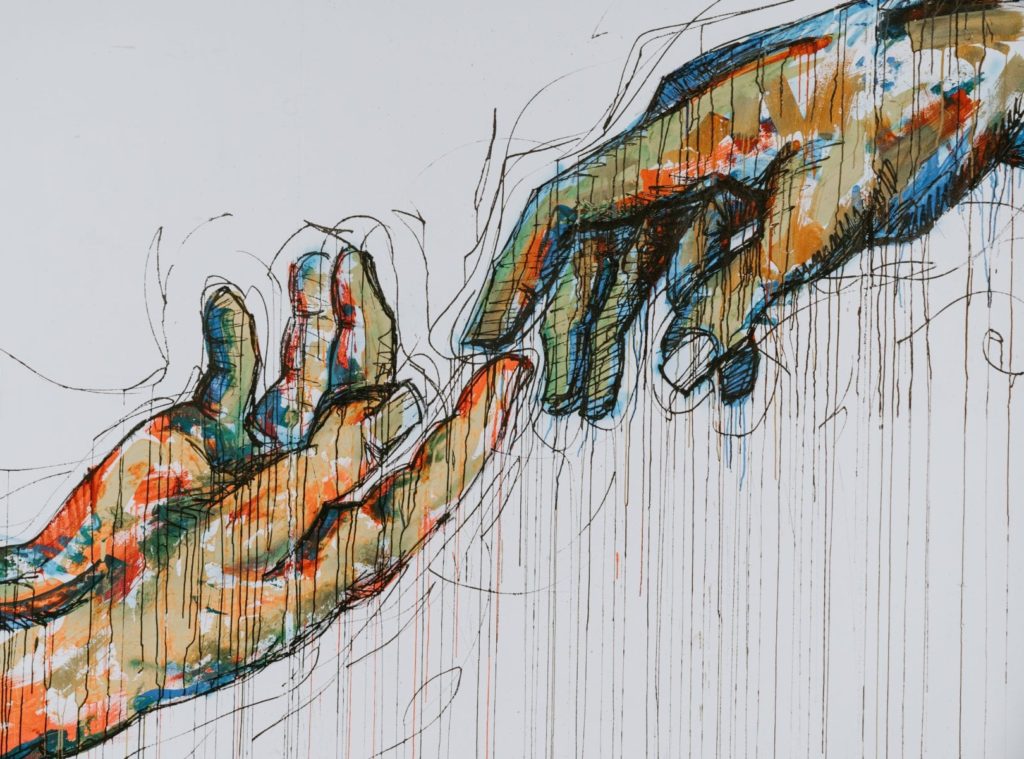
I slept soundly for 8 hours before waking this morning, a gift I seldom experience now that Parkinson’s lives in my brain. It is Election Day, and I am anxious about what the day might bring. Mostly, however, I feel sad.
How in God’s name did we get to where we are as a country? For longer than I can now recall, political differences among friends, neighbors, colleagues, and even family members have widened with each election cycle. Now, these differences have reached chasm status, with once-close relationships perpetually strained if not entirely lost.
I know people who no longer speak to one another because they cannot hold the tensions over politics at bay. I suspect you do, too.
We should not be surprised. After all, the level of vitriol on social media, television, radio, sports fields, classrooms, and dinner parties rarely shocks these days. Working together across differences—once a common practice among the most strategic and slippery politicians—has all but disappeared. The art of civility between those who love and care for one another is falling away just as fast. Whom we vote for now seems more important than the personal history and humanity we share.
One thing Parkinson’s has taught me is that what unites people has to win out over what separates us if we are to overcome the trials we face, and this is because we need one another in order to make life work with this illness.
If I attend an exercise class at Power for Parkinson’s or meet up with a running group, all of us there are united in our efforts to slow down our disease progression. We want to live with PD as best we can, and exercise helps us do it. Some of us want bigger government and some, smaller. Some identify as pro-life, others as pro-choice. Some in the room or on the trail think differently than I and others do about healthcare, immigration policies, and taxation.
These differences matter, of course, and I am not suggesting that one’s position on any of these concerns is inconsequential. Where we stand on the issues, and how the country goes, matters deeply for millions upon millions of people.
And calls for unity should never be louder than calls for justice.
What I am saying is that our having Parkinson’s, and our trying to negotiate life’s challenges with this disease, is a great reminder of our common humanity.
Whether Ethan, Bret, Jimmy, Bill, Allie, Chris, Liz, Ned, Kathy, Dan, or Jonathan see eye-to-eye with one another or with me on Biden, Trump, or who’s running for dog catcher, we have to see one another as human beings. We first have to see each other as persons struggling to live with a disease that takes and takes and takes, without caring about any of us. And seeing one another, we must remember that the best we can do is stick together, pull for each other, even sacrifice for each other on occasion, including when we disagree, because that’s what it takes to make a good life with Parkinson’s.
That’s what it takes.
As a country, we have to figure out how to see one another. We have to see one another first as persons, not as partisans, especially when we disagree and believe so passionately that we are on the right side of history and others are not. We must keep our eyes fixed on justice, and we also have to create spaces—physical, emotional, relational spaces—where we fix our eyes on one another, listen to one another, forgive one another, and affirm in one another what is good, intrinsically good.
I do not know when we will know who won the presidency. I do know that, whoever wins, we will have choices to make about how we live together. We will also have choices to make about how we seek to repair relationships, model compassion, extend olive branches, practice forgiveness, and recognize that we all only have one life to live.
This one life is fleeting, friends, whether you have a progressive disease or not. This life is also beautiful, replete with goodness and good people, even those who disagree with us vehemently; and, regardless of who wins the election, we have a chance today to reach deep within and begin a process of pulling out the better version of ourselves. Then, we can lean into this one fleeting and beautiful life we share in new ways that maybe just maybe help us all sleep a little better, and live better, too.
__________
Photo by 🇨🇭 Claudio Schwarz | @purzlbaum on Unsplash
Allan Cole is a professor in The Steve Hicks School of Social Work at The University of Texas at Austin and, by courtesy, professor of psychiatry in the Dell Medical School. Diagnosed with Parkinson’s in 2016, at the age of 48, he serves on the Board of Directors at Power for Parkinson’s, a non-profit organization that provides free exercise, dance, and singing classes for people living with Parkinson’s disease in Central Texas, and globally via instructional videos. He also serves as a Community Advocate for ParkinsonsDisease.net, writing columns about living well with Parkinson’s. He is author or editor of 10 books on a range of topics related to bereavement, anxiety, and spirituality. His latest books, Counseling Persons with Parkinson’s Disease (Oxford University Press) and Discerning the Way: Lessons from Parkinson’s Disease (Cascade), will be published in 2021. Follow him on Twitter @PDWise.
